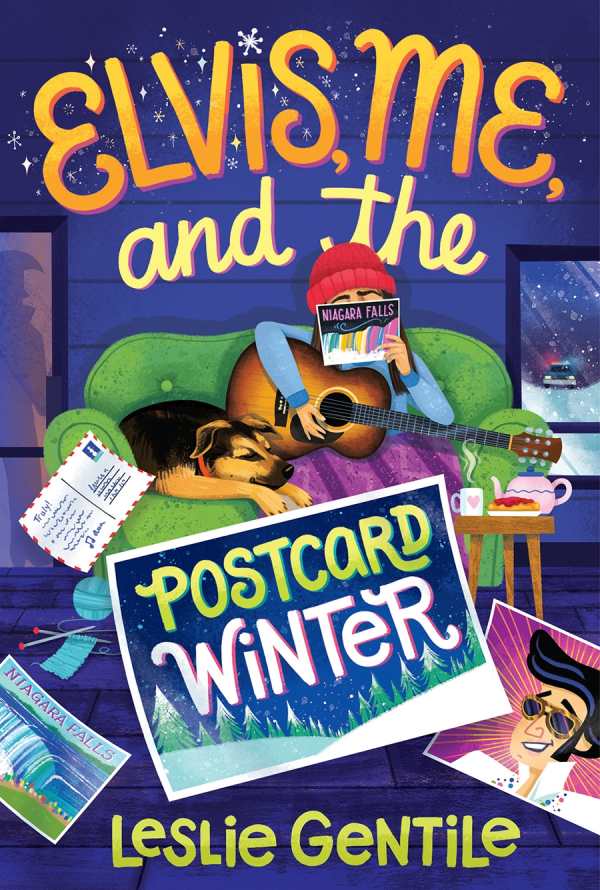Elvis, Me, and the Postcard Winter
In Leslie Gentile’s sensitive novel Elvis, Me, and the Postcard Winter, a girl’s relationship with her mother is centered.
From the Eagle Shores Indian Reserve in Vancouver Island, twelve-year-old Truly settles into life with Andy El, her Salish neighbor. Andy El took Truly in after she was abandoned by her mother, Clarice, who struggles with alcoholism and substance abuse. By way of her adoptive family—including Andy El’s nephew, Raymond; Andy El’s granddaughters, Anges and Linda; and Truly’s puppy, Gracie—Truly begins to understand healthier family dynamics. She also enjoys traditional Indigenous foods, including fry bread and venison stew, developing a stronger cultural framework for her identity.
After receiving a secondhand guitar from her famous postcard pen pal, Elvis, Truly deepens her connection to her passions and those she loves. But when Clarice returns to the Reserve, asking for another chance at a relationship, Truly is unsure of whether she wants to move back in with Clarice or stay with the comfort and stability found in her new family.
Raw, emotive, and intuitive, Truly’s adolescent introspection is front and center. She finds beauty in a lot around her. But in addition to her family struggles, she also faces and witnesses real problems. There’s racism from a school bully, social rejection, prejudiced work environments, and poverty among Indigenous communities to contend with. Her postcards to Elvis appear at the start of most chapters, serving as markers for her development and revealing her emotional states, while black-and-white illustrations of guitar chord diagrams add ambiance to her narration. The supporting characters are equally as complex.
Elvis, Me, and the Postcard Winter is a touching novel that illuminates challenges within parent-child dynamics as a girl pursues personal belonging.
Reviewed by
Brooke Shannon
Disclosure: This article is not an endorsement, but a review. The publisher of this book provided free copies of the book to have their book reviewed by a professional reviewer. No fee was paid by the publisher for this review. Foreword Reviews only recommends books that we love. Foreword Magazine, Inc. is disclosing this in accordance with the Federal Trade Commission’s 16 CFR, Part 255.

